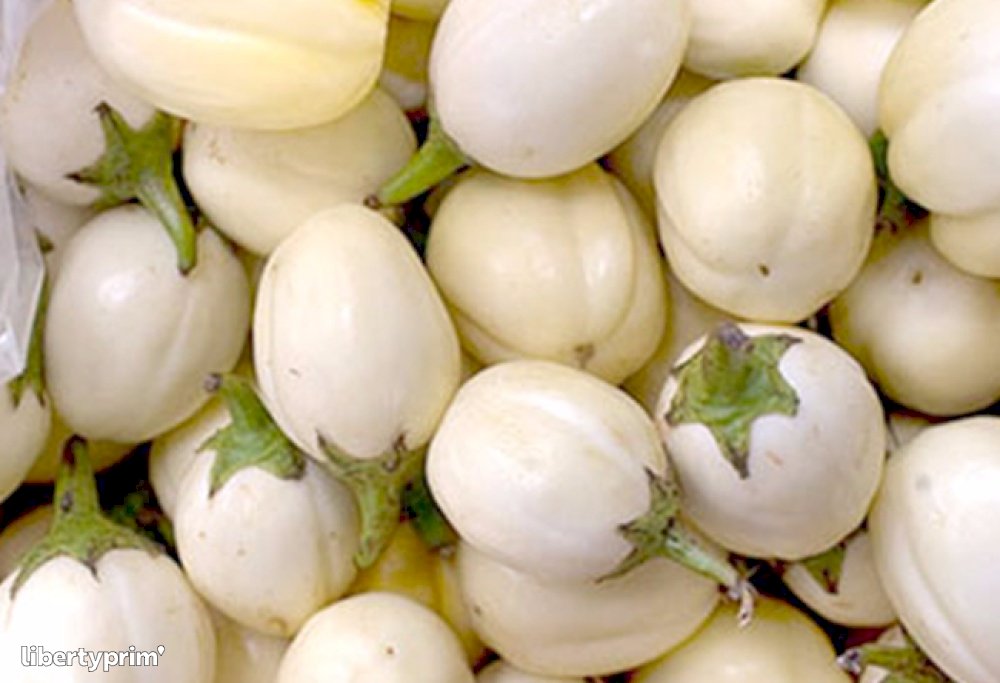
By Prof. Raphael Nyarkotey Obu. The writer
Eggplants or garden eggs as known in the Ghanaian context are a nutrient-rich food that contains fiber, vitamins, and minerals. The Garden egg gets its name from its pale colour which resembles eggs. They are also known as aubergines, belong to the nightshade family of plants such as turkey berries, and are used in many different dishes around the world.

Aubergine
Although often considered a vegetable, they’re technically a fruit, as they grow from a flowering plant and contain seeds.They come in many forms, sizes, and colors.
Loaded in Nutrients
Eggplants are a nutrient-dense food, meaning they contain a good amount of vitamins, minerals, and fiber in a few calories.
One cup (82 grams) of raw eggplant contains the following nutrients:
• Calories: 20
• Carbs: 5 grams
• Fiber: 3 grams
• Protein: 1 gram
• Manganese: 10% of the RDI
• Folate: 5% of the RDI
• Potassium: 5% of the RDI
• Vitamin K: 4% of the RDI
• Vitamin C: 3% of the RDI
Eggplants also contain small amounts of other nutrients, including niacin, magnesium, and copper.
High in Antioxidants
In addition to containing a variety of vitamins and minerals, eggplants boast a high number of antioxidants. One study by Sadilova et al.(2006) found that eggplants are rich in anthocyanins, a type of pigment with antioxidant properties that are responsible for their vibrant color. One specific anthocyanin in eggplants called nasunin is beneficial.
Another test-tube study by Jing et al.(2015) found that nasuninis effective at protecting cells against damage from harmful free radicals.
Risk of Heart Disease
An old animal study by Jorge et al.(1998) used rabbits with high cholesterol and prescribed 0.3 ounces (10 ml) of eggplant juice daily for two weeks.
After the study, they had lower levels of both LDL cholesterol and triglycerides, two blood markers that can lead to an increased risk of heart disease when elevated.
Other studies have demonstrated that eggplants may have a protective effect on the heart. For instance, one animal study by Das et al.(2011) fed raw or grilled eggplant for 30 days. Both types improved heart function and reduced heart attack severity.More studies are needed to explore its effect on humans.
Studies have confirmed the importance of eggplants on blood sugar. For instance, in an older study, Stephen and Cummings,(1980) found that eggplants are high in fiber, which goes intothe digestive system completely.
This fiber according to a study by Weickert and Pfeiffer(2008) may lower blood sugar by slowing the rate of digestion and absorption of sugar in the body. Slower absorption keeps blood sugar levels steady and prevents spikes and crashes.
Another study, by Hanhineva et al.(2010) found polyphenols, or natural plant compounds, in foods like eggplant, may reduce sugar absorption and increase insulin secretion, both of which can help lower blood sugar.
A previous test-tube study by Kwon et al.(2007) examines polyphenol-enriched extracts of eggplant and found that they decreased levels of specific enzymes that influence sugar absorption, helping reduce blood sugar.
Wolfram et al.( 2011) found that eggplants are recommended as a dietary recommendation for controlling diabetes, which includes a high-fiber diet rich in whole grains and vegetables.
Eggplants are high in fiber and low in calories, making them an excellent addition to any weight loss regimen. Fiber moves through the digestive tract slowly and can promote fullness and satiety, reducing calorie intake. Each cup (82 grams) of raw eggplant contains 3 grams of fiber and just 20 calories.Eggplants are often used as a high-fiber, low-calorie replacement for higher-calorie ingredients in recipes.
Eggplant is loaded with many compounds that fight cancer cells.One important compound is solasodine rhamnosyl glycosides (SRGs) a type of compound found in some eggplant.
One study by Cham and Chase(2012) demonstrates that SRGsmay trigger the death of cancer cells and may also help reduce the recurrence of certain types of cancer.
An earlier study, by Cham et al. (1991) established that SRGs are effective against skin cancer when applied directly to the skin. Others have also confirmed that consuming more fruits and vegetables, such as eggplant, may protect against certain types of cancer.
Another review by Block et al.(1992) examined about 200 studies that found that eating fruits and vegetables was associated with protection against pancreatic, stomach, colorectal, bladder, cervical, and breast cancer.
Take Home
Studies have demonstrated the many health benefits ofconsuming eggplant or garden eggs such as helping in blood pressure, blood sugar control, weight management, and many others.
NB:
Prof. Nyarkotey has strict sourcing guidelines and relies on peer-reviewed studies, academic research institutions, and medical associations to justify his write-ups. My articles are for educational purposes and do not serve as Medical advice for Treatment. I aim to educate the public about evidence-based scientific Naturopathic Therapies.
The writer is a Professor of Naturopathic Healthcare, a Medical Journalist, and a science writer. President, Nyarkotey University College of Holistic Medicine & Technology (NUCHMT)/African Naturopathic Foundation, Ashaiman, Ghana. Currently BL Candidate at the Gambia Law School, Banjul. E. mail: professor40naturopathy@gmail.com.
References
1. Block G, Patterson B, Subar A. Fruit, vegetables, and cancer prevention: a review of the epidemiological evidence. Nutr Cancer. 1992;18(1):1-29. doi: 10.1080/01635589209514201. PMID: 1408943.
2. Jorge PA, Neyra LC, Osaki RM, de Almeida E, BragagnoloN. Efeito da berinjela sobre os lípides plasmáticos, a peroxidação lipídica e a reversão da disfunção endotelial nahipercolesterolemia experimental [Effect of eggplant on plasma lipid levels, lipidic peroxidation and reversion of endothelial dysfunction in experimental hypercholesterolemia]. Arq Bras Cardiol. 1998 Feb;70(2):87-91. Portuguese. doi: 10.1590/s0066-782×1998000200004. PMID: 9659714.
3. Sadilova E, Stintzing FC, Carle R. Anthocyanins, colourand antioxidant properties of eggplant (Solanum melongenaL.) and violet pepper (Capsicum annuum L.) peel extracts. Z Naturforsch C J Biosci. 2006 Jul-Aug;61(7-8):527-35. doi: 10.1515/znc-2006-7-810. PMID: 16989312.
4. Jing P, Qian B, Zhao S, Qi X, Ye L, Mónica Giusti M, Wang X. Effect of glycosylation patterns of Chinese eggplant anthocyanins and other derivatives on antioxidant effectiveness in human colon cell lines. Food Chem. 2015 Apr 1;172:183-9. doi: 10.1016/j.foodchem.2014.08.100. Epub 2014 Sep 6. PMID: 25442541.
5. Das S, Raychaudhuri U, Falchi M, Bertelli A, Braga PC, Das DK. Cardioprotective properties of raw and cooked eggplant (Solanum melongena L). Food Funct. 2011 Jul;2(7):395-9. doi: 10.1039/c1fo10048c. Epub 2011 Jun 10. PMID: 21894326.
6. Stephen AM, Cummings JH. Mechanism of action of dietary fibre in the human colon. Nature. 1980 Mar 20;284(5753):283-4. doi: 10.1038/284283a0. PMID: 7360261.
7. Weickert MO, Pfeiffer AF. Metabolic effects of dietary fiber consumption and prevention of diabetes. J Nutr. 2008 Mar;138(3):439-42. doi: 10.1093/jn/138.3.439. PMID: 18287346.
8. Hanhineva K, Törrönen R, Bondia-Pons I, Pekkinen J, Kolehmainen M, Mykkänen H, Poutanen K. Impact of dietary polyphenols on carbohydrate metabolism. Int J MolSci. 2010 Mar 31;11(4):1365-402. doi: 10.3390/ijms11041365. PMID: 20480025; PMCID: PMC2871121.
9. Kwon YI, Apostolidis E, Shetty K. In vitro studies of eggplant (Solanum melongena) phenolics as inhibitors of key enzymes relevant for type 2 diabetes and hypertension. Bioresour Technol. 2008 May;99(8):2981-8. doi: 10.1016/j.biortech.2007.06.035. Epub 2007 Aug 13. PMID: 17706416
10. Wolfram T, Ismail-Beigi F. Efficacy of high-fiber diets in the management of type 2 diabetes mellitus. Endocr Pract. 2011 Jan-Feb;17(1):132-42. doi: 10.4158/EP10204.RA. PMID: 20713332.
11. Cham BE, Chase TR. Solasodine rhamnosyl glycosides cause apoptosis in cancer cells. Do they also prime the immune system resulting in long-term protection against cancer? Planta Med. 2012 Mar;78(4):349-53. doi: 10.1055/s-0031-1298149. Epub 2012 Jan 13. PMID: 22399274.




